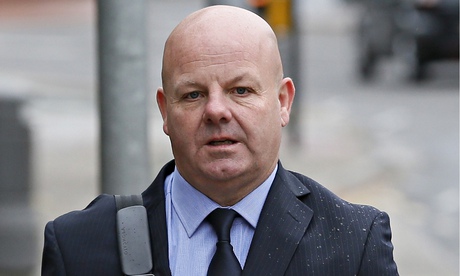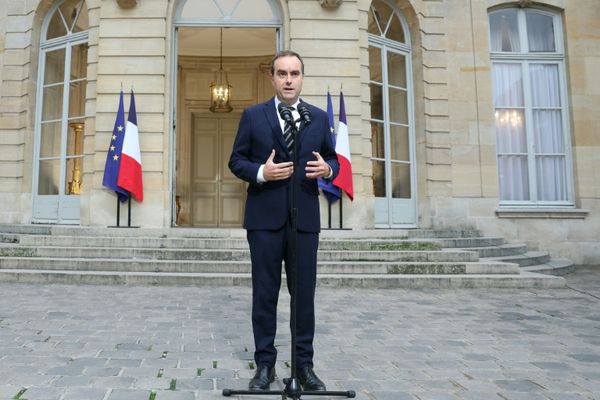
Some of the stories leaked to the Sun by two public officials were so trivial that paying for the tip-offs could not amount to a criminal offence, a court has heard.
Counsel for the Sun reporter Jamie Pyatt urged the jury to find his client not guilty, saying he could not have conspired to commit misconduct in public office for a string of legal reasons.
In his closing speech, Richard Kovalevsky QC said Pyatt had been portrayed as “shifty” and “dishonest” by the barrister representing his co-defendant Chris Pharo, but that it was Rebekah Wade [now Brooks], the former editor of the Sun, who publicly stated they paid police.
The jury was also told that if Pyatt’s declaration under cross-examination that it was “common knowledge” that the Sun paid public officials was a lie, then he should be acquitted as no conspiracy could flow from an untruth.
Kovalevsky said Pyatt’s declaration “accords” with his “own knowledge of life”, which would have included Wade’s appearance at a parliamentary select committee in 2003. “I think it was the culture media and sport committee. She said there, in front of all those MPs, ‘shock, horror, we pay police officers for stories’.”
Kovalevsky said his client had been torn apart by the prosecutor Peter Wright, and if the jury thought Pyatt was a “thorough ne’er do well” and a “lying toad” then they may find him guilty.
But if they found him to be “a family man, just doing his job, a decent sort, who got cross-examined to smithereens and his defence amount[ed] to something in the public interest” they should find him not guilty, Kovalevsky said.
Pointing to the judge’s 24-page legal directions, Kovalevsky told jurors that the threshold for conviction was “very high”. He said this was why “juries are having difficulties with these charges” in other courts.
He told jurors they had to satisfy themselves that Pyatt “knew or intended” that the information his sources were leaking was confidential. They also had to be sure that Pyatt “knew or intended” that the leak would amount to “wilful misconduct” on the part of the public officer.
“Under the law, if it’s trivial, it is not confidential,” he said.
Stories such as the Sun’s exposé, headlined “Sick or treat”, of a Halloween party at the high-security Broadmoor hospital – one of the stories Pyatt admitting paying for – could not amount to a breach of confidence, the jury was told. They were also “inarguably” in the public interest, Kovalevsky said.
“A good example is ‘Sick or treat’. Do you remember that story? It’s pretty trivial information: there’s a Halloween party in Broadmoor, patients dress up in ghoulish costumes to celebrate the druid festival. Brilliant. Pretty trivial,” he told the jury.
Kovalevsky said it may have seemed trivial, but it led to a debate in the House of Commons with Jack Straw banning such celebrations because he thought it was not in good taste.
Other stories Kovalevsky said were in the public interest included revelations that the Yorkshire Ripper, Peter Sutcliffe, was allowed on a trip to the Lake District to scatter the ashes of his father “because he was feeling depressed”; and a story headlined “Cannibal pops out for an op”, about an ingrown toenail procedure.
This may also have been a story leaked with “reasonsable excuse” under the law, by the Broadmoor health worker Robert Neave, Kovalevsky said.
Pyatt would have to have consciously decided to “become a criminal” in order for him to be guilty of the charges he faced, his counsel said.
Under the Bribery Act of 2010, an offence is committed “if you pay someone and they breach a confidence”. The offence of conspiracy to cause misconduct in public office requires “that extra layer of knowledge and intent”, said Kovalevsky.
“You have to find that Jame Pyatt decided to become a criminal. In our submission, that would be perverse,” Kovalevsky told jurors.
Pyatt and his five co-defendants – the Sun’s head of news, Chris Pharo; the paper’s former deputy news editor Ben O’Driscoll; picture editor John Edwards; former managing editor Graham Dudman; and former reporter John Troup – deny all the charges against them.
The trial continues.







